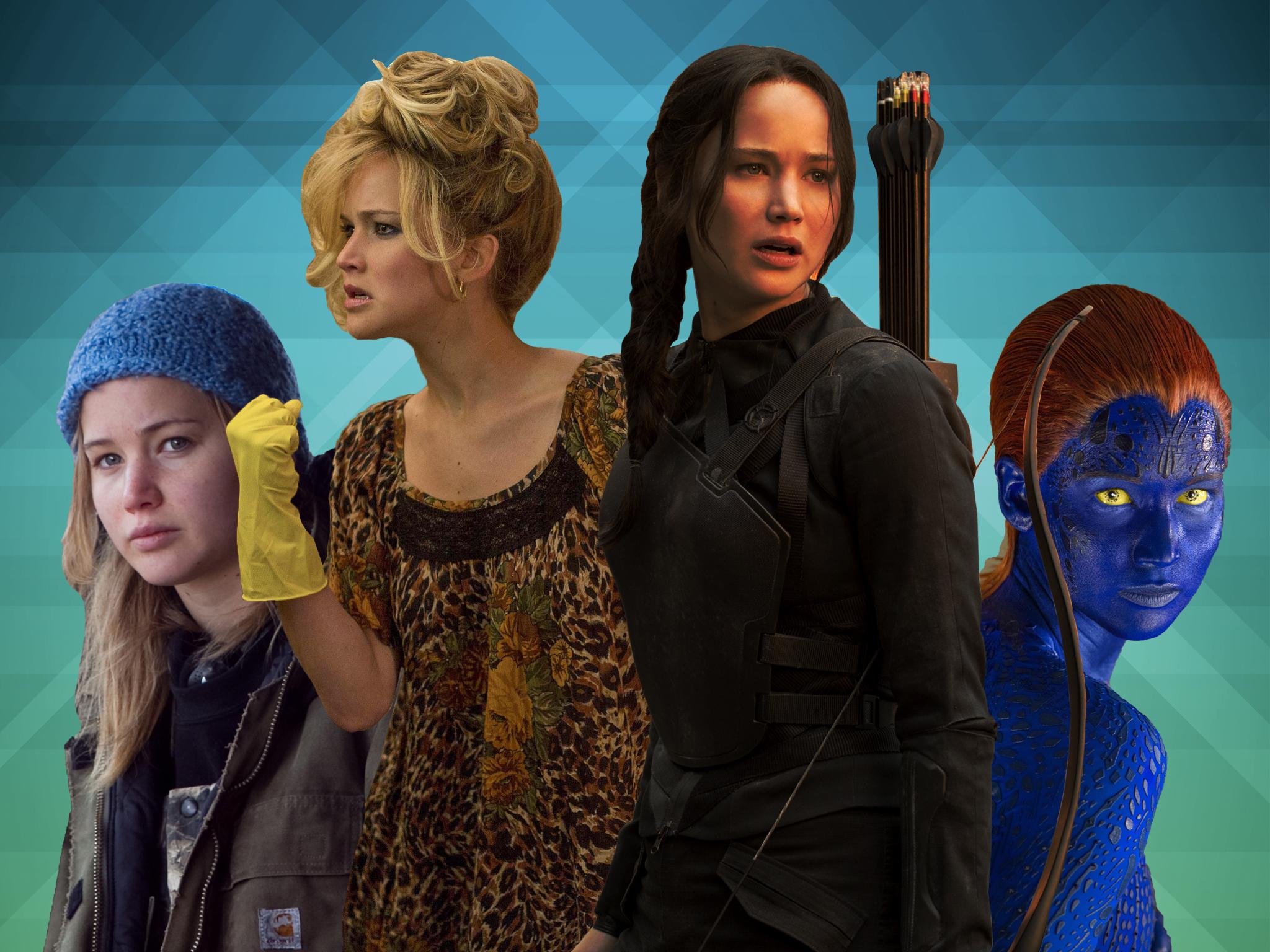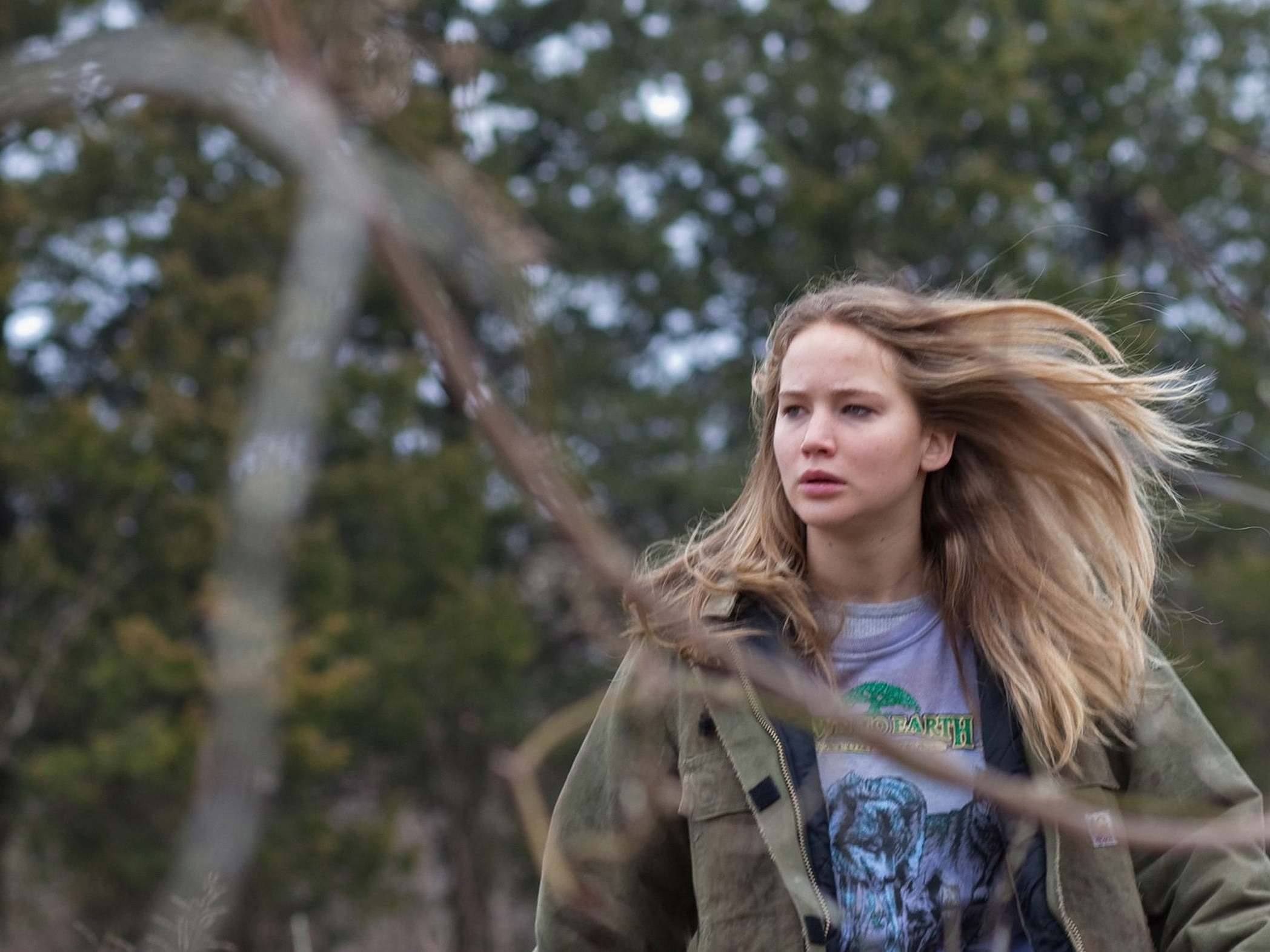‘Even the aliens are annoyed’: Jennifer Lawrence and the struggles of America’s Sweetheart in the digital age
The actor’s misfortune is that she became famous at a time when the internet had reached peak dominance, but celebrities had yet to learn to use it to their own advantage, writes Clarisse Loughrey


Your support helps us to tell the story
From reproductive rights to climate change to Big Tech, The Independent is on the ground when the story is developing. Whether it's investigating the financials of Elon Musk's pro-Trump PAC or producing our latest documentary, 'The A Word', which shines a light on the American women fighting for reproductive rights, we know how important it is to parse out the facts from the messaging.
At such a critical moment in US history, we need reporters on the ground. Your donation allows us to keep sending journalists to speak to both sides of the story.
The Independent is trusted by Americans across the entire political spectrum. And unlike many other quality news outlets, we choose not to lock Americans out of our reporting and analysis with paywalls. We believe quality journalism should be available to everyone, paid for by those who can afford it.
Your support makes all the difference.Jennifer Lawrence is in tactical retreat mode. X-Men: Dark Phoenix, released this time last year, saw her sever ties with the last of her franchises. And with that, she bid the Hollywood machine adieu – at least, for the time being. She’s used her time off well, engaging in charity work, getting hitched and carousing in drag bars with Adele. Her reason for the break was short and succinct: the world had tired of her. As she explained to Vogue, “even the aliens are annoyed”.
Such is the fate of America’s Sweetheart, plucked from obscurity, plastered on every magazine cover, then doomed to inevitable overexposure. The film industry has fed off a conveyor belt of pretty, young white women that fit a specific bill – bubbly and grounded, but one firm step away from the unattainable sexpot. America’s Sweetheart is someone to covet, not to worship. At the turn of the 20th century, Mary Pickford – one of the first to be given the title – perfected innocence with a pile of ringlets and a demure pose. In the Eighties, the country fell head over heels for Molly Ringwald’s broad and honest grin.
Lawrence fits snugly into the mould of non-threatening tomboy. Born in Louisville, Kentucky, she grew up on a horse farm, alongside two brothers, and played for her school’s all-boy basketball team. The actor’s sharper angles are softened by a gentle pout and bright, inquisitive eyes. Her voice is a low, throaty rattle that instantly suggests years of wisdom and insight – a suitable chaser, too, for her dark sense of humour and propensity to swear. And, as is often discussed, her physique breaks rank with Hollywood’s ultra-skinny norm.
Onscreen, she’s known for playing hardened, flinty women like Katniss Everdeen from The Hunger Games or Ree Dolly from her breakthrough film Winter’s Bone, which turns 10 on Thursday. Offscreen, she’s the doyenne of self-deprecation. Yet the sweethearts that reigned in decades past lived in an entirely different world. The internet made Lawrence not only covetable to her audience, but oddly accessible. Her accomplishments – she’s the youngest four-time Oscar nominee, winning in 2013 for Silver Linings Playbook, and topped the list of highest-paid actresses in both 2015 and 2016 – end up sidelined by all the effusive testaments to her relatability.
In GIFs, listicles, and memes, we’re constantly reminded that she’s “one of us”. Remember when she fell flat on her face accepting her Academy Award? How about when she was caught clambering over a row of seats, wine in hand? There’s the moment, mid-interview anecdote, when she growled, “WHERE’S THE PIZZA?” – because nothing aligns us more with our favourite A-list stars than a mutual junk-food obsession. Saturday Night Live hit the nail on the head during one of its “Celebrity Family Feud” sketches when Ariana Grande, impersonating the actor, declared: “They told me not to do a game show, but I was like, ‘Screw it, I can have fun, I’m a regular person.’”

The internet latched on to every minor moment, repackaged it, then sold it as a declaration of authenticity. Lawrence was proof that, in the age of mass digital dissemination, celebrities no longer had to hide behind carefully manicured personas. The air of polished mystique that made Sandra Bullock or Reese Witherspoon look untouchable on their magazine covers was now replaced with something deliberately raw and unrehearsed. On her first Oscars red carpet, the actor was eager to confess that she’d just scoffed a Philly cheesesteak.
It was mutually beneficial for both audience and star – the public could act like they were all gal pals with one of the world’s most famous women, while Lawrence herself wasn’t forced to muzzle her own personality for anyone’s benefit. As time went on, though, the cracks in this alliance started to appear. Every action not only became a news item, but an all-out debate. The world suddenly felt entitled to micromanage Lawrence’s life. In February 2018, while on the press tour for Red Sparrow, the actor wore a wispy black dress for a photocall on a wintry London rooftop. She was surrounded by male co-stars, all buttoned up and swaddled in wool coats. It was a casual reminder of the gulf of expectation between men and women, but the media acted as if Lawrence had been forced out there at gunpoint. Think piece after think piece appeared. Eventually, the actor was forced to respond on her (sparsely updated and now deleted) Facebook page. “Get a grip people. Everything you see me wear is my choice,” she wrote. “This is sexist, this is ridiculous, this is not feminism… it’s creating silly distractions from real issues.”

Then came the accusations of rudeness. When she picked up the Golden Globe for Best Actress for 2015’s Joy, she shot down a reporter for using his phone mid-press conference. “You can’t live behind your phone, bro,” she quipped. The internet constructed a narrative that insisted the reporter wasn’t a native English speaker and was using his phone to read out his question. Someone on the ground confirmed he had, in fact, been taking pictures and videos of the actor. At the 2018 Baftas, when she playfully rebuffed Joanna Lumley’s laudatory description of her as “the hottest actress on the planet”, sections of the UK public reacted as if she’d just committed treason. Minor gripes and sincere discussions (for example, about her own relationship with white privilege) were treated with the same breathless urgency. The men of Hollywood would never suffer the same scrutiny.
The world demanded authenticity, but then refused to let Lawrence be the author of her own identity. Narratives were constantly built around her. Was she bawdy and down to earth? Or a cynically constructed “cool girl”? Lawrence’s misfortune is that she rose to fame at a time when the internet had reached peak dominance, but celebrities had yet to learn the ways that same platform could be used to reclaim some sense of control over how the world sees them (see Chrissy Teigen, who’s essentially crafted a secondary career out of Twitter, thanks to her own personal brand of unvarnished honesty). When Lawrence eventually makes her return, maybe she’ll try her hand at social media domination. Or, just maybe, we’ll have finally learnt how to treat her more like a four-time Oscar nominee, less like a surrogate BFF.
Join our commenting forum
Join thought-provoking conversations, follow other Independent readers and see their replies
Comments